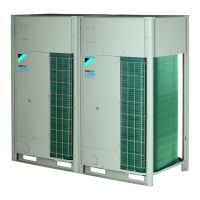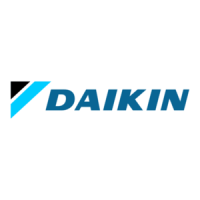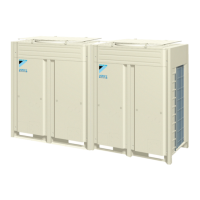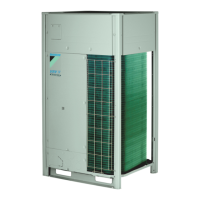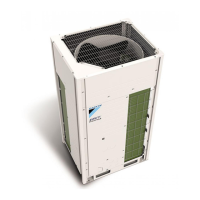What to do if an error occurred during the Daikin REYQ8T7Y1B test run?
- Ddouglas47Sep 1, 2025
If your Daikin Air Conditioner experiences an error during the test run, re-execute the test run.
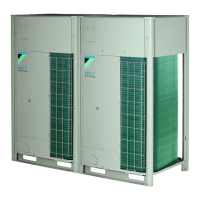
What to do if an error occurred during the Daikin REYQ8T7Y1B test run?
If your Daikin Air Conditioner experiences an error during the test run, re-execute the test run.
What to do if Daikin Air Conditioner system test run not yet executed?
If the Daikin Air Conditioner system test run has not been executed, execute a system test run.
What to do if Daikin REYQ8T7Y1B Air Conditioner test run aborted due to communication issues?
If the Daikin Air Conditioner test run is aborted due to communication issues, check the communication wires and then re-execute the test run.
What to do if my Daikin Air Conditioner has a refrigerant overcharge or stop valve closed?
If your Daikin Air Conditioner indicates a refrigerant overcharge or a closed stop valve, check the refrigerant amount and recharge the unit if necessary. Also, ensure that the stop valves are open.
How to troubleshoot a Daikin REYQ8T7Y1B with an activated high pressure switch?
If the high pressure switch is activated on your Daikin Air Conditioner, check the stop valve situation and inspect for any abnormalities in the field piping or airflow over the air-cooled coil.
How to fix a Daikin REYQ8T7Y1B Air Conditioner indoor unit communication error?
If you experience an indoor unit communication error with your Daikin Air Conditioner, check the user interface connection.
What to do if my Daikin REYQ8T7Y1B Air Conditioner shows a low pressure malfunction?
If your Daikin Air Conditioner is showing a low pressure malfunction, first open the stop valves. Then, check the refrigerant level and recharge the unit if needed. Finally, inspect the user interface display and the transmission wiring between the outdoor and indoor units.
| Brand | Daikin |
|---|---|
| Model | REYQ8T7Y1B |
| Category | Air Conditioner |
| Language | English |
Details the documentation set, including safety, installation, and reference guides.
Specifies the diameters of various accessory pipes used for system connections.
Information on the VRV IV heat recovery system, its models, operating conditions, and system layout.
Guidelines for site selection, preparation, and cold climate considerations for outdoor units.
Requirements for refrigerant piping, including material, size selection, and branch kits.
Safety device requirements for electrical wiring, including selection and sizing guidelines.
Instructions for opening outdoor units and their electrical component boxes.
Guidance on installing the outdoor unit level on a stable base, with foundation and height requirements.
Procedures for routing and connecting refrigerant piping, including knockout holes and contamination protection.
Methods for performing leak tests and vacuum drying of the refrigerant piping system.
Detailed procedures for charging refrigerant, including precautions, methods, and calculations.
Overview of manual input for system configuration via PCB buttons and 7-segment displays.
Explains accessing monitoring (Mode 1) and field settings (Mode 2) via push buttons.
Lists available monitoring settings and their descriptions, including power consumption and leak detection results.
Lists available field settings and their descriptions, including target temperatures and height difference.
Safety guidelines for commissioning, emphasizing testing only after all preparations are complete.
Pre-commissioning checks for installation, wiring, and unit integrity.
Description of the test operation procedure to verify system functionality and identify issues.
Specifies minimum clearances around the outdoor unit for servicing and air inlet/outlet.
Illustrates refrigerant piping diagrams for different HP configurations of the outdoor unit.
Overview of VRV IV heat recovery system models and their compatibility with indoor units.
Recommended temperature and humidity ranges for safe and effective system operation.
Procedures for operating the system in cooling, heating, fan only, and automatic modes.
Instructions for activating the dry program to reduce humidity with minimal cooling.
Information on refrigerant type, GWP, and precautions for handling and environmental impact.
Guidance on regular maintenance and dealer-assisted inspections for optimal unit performance.
Methods for resolving system issues by interpreting and addressing displayed malfunction codes.
A comprehensive list of error codes, their causes, and solutions for troubleshooting.
Descriptions of common operational behaviors that are not actual malfunctions.
